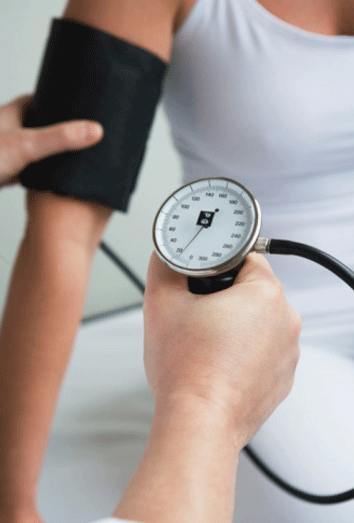Surely more than once you have suffered a drop in voltage. Feeling dizzy, ringing in the ears, confusion… these are some of the symptoms of hypotension, which, although it does not present any health risk, if the drop in blood pressure is large, it can become a distressing moment. Unlike hypertension, low blood pressure does not need any medical treatment, but it is important to know how to act in a situation like this.

What is a voltage drop
- When there is a drop in blood pressure, less blood reaches the brain and therefore less oxygen. This can cause feelings of fatigue, dizziness, blurred vision, cold hands and feet, ringing in the ears, and even fainting. But as we say, hypotension is not a health problem, but rather a specific situation. What’s more, people with a tendency to low blood pressure have a higher life expectancy than people with hypertension.
- Voltage drops affect especially extremely thin young people, pregnant women and the elderly. But there are some causes that can favor the appearance of a drop in blood pressure in any person, such as being under a lot of stress, or in very hot environments and sudden changes in position. In any case, it is a temporary ailment, which you should not worry about, but in which you have to know how to act.
- Although it has no health consequences, a drop in blood pressure can cause fainting and, therefore, a fall, so special care must be taken with the elderly, for whom a fall can mean a significant decrease in their quality of life.
What to do in the event of a voltage drop
- If you start to feel dizzy and think you are experiencing a drop in blood pressure, it is best to lie down with your legs raised. In case you cannot do this because you are in a public place, at work, etc., you can sit with your head down. It will also help you recover if you drink sugary liquids or caffeine, as well as candy or jelly beans that have a lot of sugar.
- For people who frequently suffer from drops in blood pressure, there are a series of recommendations to prevent these episodes, such as contrast showers alternating hot and cold water, regular physical exercise, avoiding being overweight, practicing relaxation techniques, eating a balanced diet, Do not stay long in a very hot environment and, above all, drink plenty of fluids.
- It must be taken into account that a drop in blood pressure, although it does not usually present complications, sometimes appears associated with a disease. That is why it is very important to see a doctor if the drop in blood pressure is accompanied by chest pain, arrhythmia, fever or difficulty breathing, to find the cause that is causing the hypotension.
